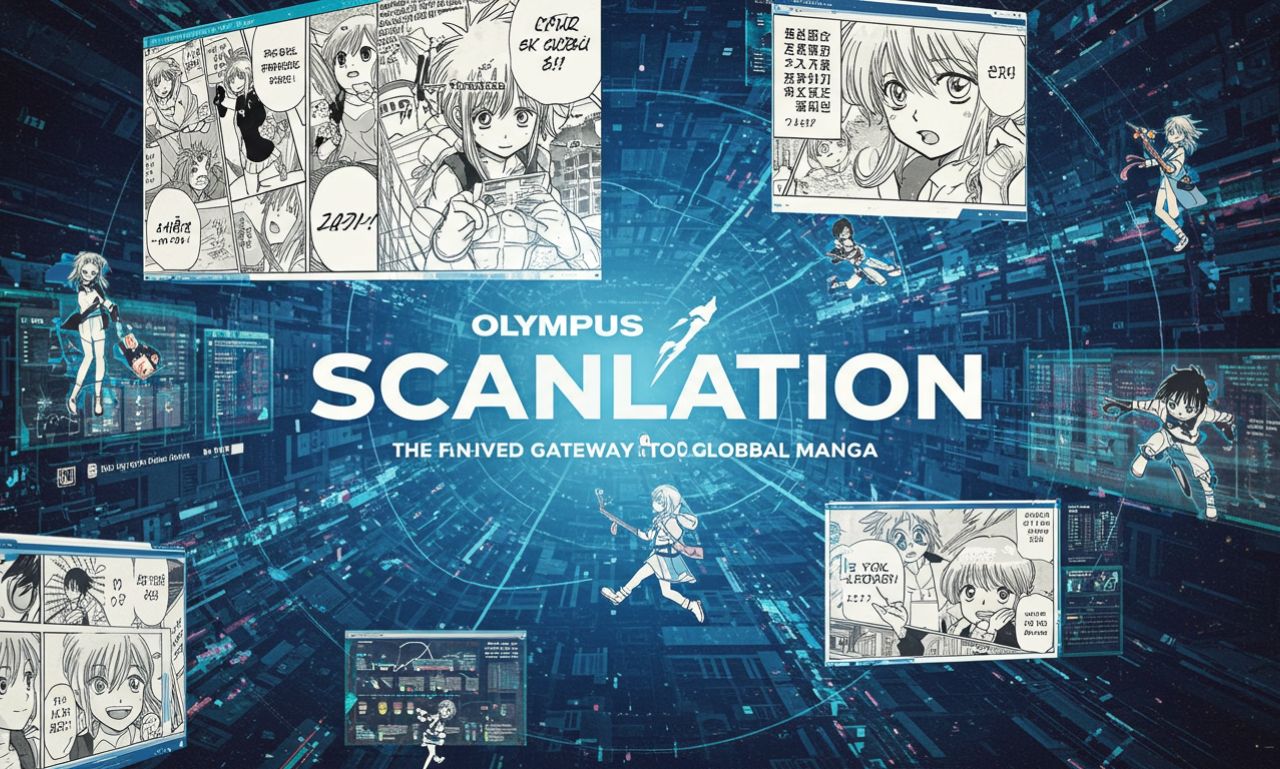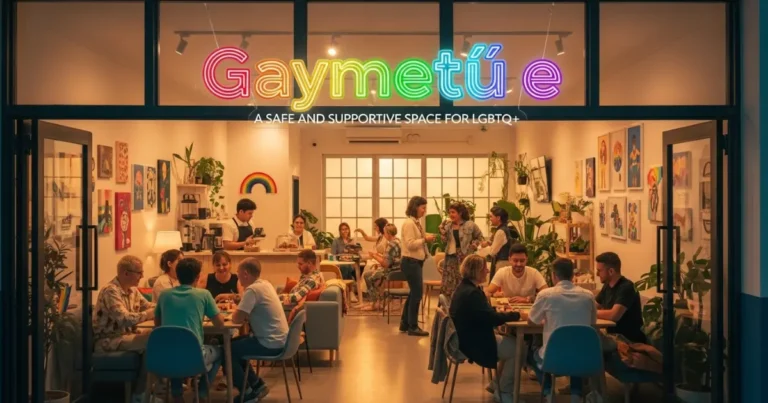
In recent years, Olympus Scanlation has become a familiar name in manga and manhwa fan circles. While many readers wait for official English releases, scanlation groups like Olympus work tirelessly to translate and share stories that might otherwise remain locked behind language barriers.
But what exactly is Olympus Scanlation? Why does it hold such a strong reputation in the manga community? And how does it balance passion, legality, and ethics in such a complex ecosystem?
This comprehensive article explores Olympus Scanlation from every angle — its origins, methods, values, controversies, and future — revealing why it has become a key part of the digital manga landscape.
What Is Olympus Scanlation?
Olympus Scanlation is a volunteer-run group dedicated to translating, editing, and sharing manga and manhwa that have not yet been officially localized into English or other languages.
The term scanlation itself is a blend of “scan” and “translation.” It describes a process where fans scan physical or digital manga pages, translate the Japanese (or Korean) text, and then edit and typeset the dialogue in their chosen language. The finished chapters are distributed online, often for free.
Olympus Scanlation is known for maintaining a high standard of translation quality and artistic integrity. While many scanlation groups rush to release chapters, Olympus is praised for balancing speed with accuracy and cultural authenticity.
In essence, Olympus Scanlation bridges the gap between fans and creators, allowing global readers to enjoy series that may never see an official translation.
How Olympus Scanlation Started
The roots of Olympus Scanlation trace back to the early 2010s, when a small group of manga enthusiasts united to translate titles that had been overlooked by mainstream publishers. At that time, many manga and manhwa were only available in their native languages, limiting international readership.
Olympus was born from a shared frustration — and a shared dream. The founding members weren’t just translators; they were fans first. They wanted others to experience the same joy, heartbreak, and inspiration found in the stories they loved.
Operating mostly anonymously, the group began releasing translated chapters on fan forums and manga reader platforms. Over time, their attention to detail and consistency gained them a loyal following. Fans came to recognize Olympus not just as a scanlation group but as a symbol of fan dedication and global manga culture.
How Olympus Scanlation Works
Creating a translated chapter may look simple from the outside, but it’s a meticulous, multi-step process that requires collaboration between skilled volunteers.
1. Raw Acquisition
Olympus begins by obtaining raws — the original, untranslated pages of a manga or manhwa. These might come from physical scans, digital copies, or contributions from community members.
2. Translation
The translator interprets the text from Japanese or Korean into English (or another target language). This step demands more than linguistic skill — it requires cultural fluency to capture the tone, humor, and emotion of the source.
3. Cleaning and Redrawing
After translation, editors remove the original text, repair the artwork underneath, and clean the image for clarity. Any damaged or obscured artwork is digitally redrawn to preserve the original look.
4. Typesetting
Next, the translated text is inserted back into the speech bubbles using professional fonts and layouts. This stage combines graphic design and storytelling rhythm to maintain readability and visual appeal.
5. Proofreading and Quality Check
Before release, proofreaders check grammar, consistency, and tone. The final chapter is reviewed for accuracy and aesthetic balance.
6. Release and Feedback
The completed chapter is then shared online through Olympus’ official channels. Fans provide feedback, corrections, and suggestions for improvement.
This collaborative process ensures that each release reflects Olympus’ trademark mix of quality, speed, and respect for the source material.
Why Olympus Scanlation Stands Out
Among hundreds of scanlation groups worldwide, Olympus has earned a strong reputation for reliability, accuracy, and ethics.
-
Quality over Speed: Olympus prefers accuracy and cultural fidelity over rushed releases. Their translations often retain Japanese honorifics and contextual notes, helping readers understand cultural nuances.
-
Community-Centered Approach: Olympus actively involves its audience, letting fans vote on which series to translate next.
-
Non-Commercial Policy: The group avoids monetization through ads or paywalls, emphasizing that their goal is access, not profit.
-
Transparency and Respect: Olympus openly acknowledges creators and stops working on series once official English releases become available.
Through these principles, Olympus has built trust — not only with fans but also within the broader translation community.
Legal and Ethical Dimensions of Olympus Scanlation
The Legal Gray Area
Scanlation, by nature, exists in a legal gray zone. Translating and distributing copyrighted material without permission technically violates copyright law in most countries.
However, most scanlation groups, including Olympus, operate under informal ethical rules. They aim to promote works rather than exploit them and cease activity once official translations are published.
In practice, publishers often tolerate small-scale fan translations, seeing them as free promotion — until they begin to affect sales or cross into commercial use.
Ethical Balancing Act
Supporters of Olympus argue that scanlations democratize access to culture. Many fans live in regions where manga and manhwa are unavailable or overpriced. Without scanlation, they would never discover these stories.
Critics, on the other hand, argue that even well-intentioned groups can harm creators financially by distributing free versions of paid content.
Olympus tries to balance both sides — maintaining ethical awareness while serving fans hungry for untranslated content.
Benefits of Olympus Scanlation
Despite its controversial status, Olympus brings undeniable benefits to both readers and the manga ecosystem.
-
Accessibility: Fans around the world can enjoy manga that might never receive official translations.
-
Cultural Exchange: Scanlations help readers explore foreign storytelling styles, idioms, and traditions.
-
Community Building: Fans collaborate, discuss, and learn languages through the scanlation process.
-
Promotion for Creators: Popular scanlated titles often catch publishers’ attention and later get licensed officially.
In this way, Olympus functions as both a cultural ambassador and a grassroots promoter of the global manga industry.
Challenges and Controversies
No community is without friction. Olympus Scanlation faces multiple challenges in sustaining its operations.
1. Copyright Enforcement
Some publishers issue takedown requests or block access to scanlated content. Olympus must constantly navigate copyright restrictions to avoid site closures.
2. Volunteer Burnout
With no monetary incentives, translators and editors often work late nights to keep up with demand. Burnout can slow production and affect quality.
3. Quality Variation
While Olympus maintains strong standards, translation quality can vary between projects depending on team composition and workload.
4. Ethical Scrutiny
As legal streaming and digital manga services grow, scanlation’s role becomes more controversial. Critics argue fans should now support official platforms instead of relying on fan-made versions.
5. Technological Pressure
AI translation tools and automated editing software are changing the scanlation landscape. Olympus must adapt to new tech without losing its human touch.
The Future of Olympus Scanlation
The future of Olympus Scanlation depends on how the industry evolves and how the group adapts. Several trends are already shaping the path forward:
-
More Legal Options: Platforms like Manga Plus, Webtoon, and Viz Digital now offer free official translations, reducing demand for fan versions.
-
Fan-Publisher Collaboration: Some publishers are exploring hybrid models that allow fans to contribute to official translation efforts.
-
Ethical Evolution: Olympus continues refining its internal rules — ceasing work on licensed titles, crediting creators, and encouraging legal purchases.
-
Technological Innovation: AI tools may assist with faster cleaning and translation, but Olympus emphasizes keeping human oversight for quality.
While the scanlation landscape may change, Olympus’ passion for connecting fans with stories remains constant.
Why Olympus Scanlation Still Matters
Despite rising legal services, there’s still a gap between what fans want and what the market provides. Many niche or indie titles never reach English audiences.
For those stories, Olympus remains a lifeline — a way to experience narratives that would otherwise stay hidden.
More importantly, Olympus embodies the spirit of fandom: creativity, collaboration, and love for storytelling. It’s proof that fans aren’t just consumers — they’re cultural participants shaping global appreciation for manga and manhwa.
Conclusion
Olympus Scanlation represents more than just fan translations — it’s a community built on passion, ethics, and accessibility. It fills a crucial role in global manga culture, giving readers worldwide a chance to experience stories that might never reach them otherwise.
Yet, its existence also sparks important discussions about copyright, creator compensation, and fan responsibility. The ideal future isn’t a battle between fans and publishers — it’s collaboration.







